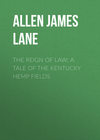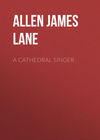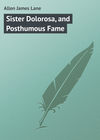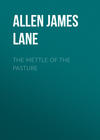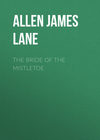Czytaj książkę: «The Reign of Law; a tale of the Kentucky hemp fields», strona 9
For, moreover, David had set his feet a brief space on the wide plains of living-knowledge; he had encountered through their works many of the great minds of his century, been reached by the sublime thought-movements of his time, heard the deep roar of the spirit's ocean. Amid coarse, daily labor once more, amid the penury and discord in that ruined farmhouse, one true secret of happiness with David was the recollection of all the noble things of human life which he had discovered, and to which he meant to work his way again as soon as possible. And what so helps one to believe in God as knowledge of the greatness of man?
Meantime, also, his mind was kept freshly and powerfully exercised. He had discarded his old way of looking at Nature and man's place in it; and of this fundamental change in him, no better proof could be given than the way in which he regarded the storm, as he left the breakfast-table this morning and went to the woods.
The damage was unreckonable. The trees had not been prepared against an event like that. For centuries some of them had developed strength in root and trunk and branch to resist the winds of the region when clad in all their leaves; or to carry the load of these leaves weighted with raindrops; or to bear the winter snows. Wise self-physicians of the forest! Removing a weak or useless limb, healing their own wounds and fractures! But to be buried under ice and then wrenched and twisted by the blast—for this they had received no training: and thus, like so many of the great prudent ones who look hourly to their well-being, they had been stricken down at last by the unexpected.
"Once," said David reverently to himself, beholding it all, "once I should have seen in this storm some direct intention of the Creator toward man, even toward me. It would have been a reminder of His power; perhaps been a chastisement for some good end which I must believe in, but could not discover. Men certainly once interpreted storms as communications from the Almighty, as they did pestilence and famine. There still may be in this neighborhood people who will derive some such lesson from this. My father may in his heart believe it a judgment sent on us and on our neighbors for my impiety. Have not cities been afflicted on account of the presence of one sinner? Thankful I am not to think in this way now of physical law—not so to misconceive man's place in Nature. I know that this sleet, so important to us, is but one small incident in the long history of the planet's atmosphere and changing surface. It is the action of natural laws, operating without regard to man, though man himself may have had a share in producing it. It will bring death to many a creature; indirectly, it may bring death to me; but that would be among the results, not in the intention."
He set his face to cross the wood—sliding, skating, steadying himself against the trunks, driving his heels through the ice crust The exercise was heating; his breath rose as a steam before his face. Beyond the woods he crossed a field; then a forest of many acres and magnificent timber, on the far edge of which, under the forest trees and fronting a country lane, stood the schoolhouse of the district. David looked anxiously, as he drew near, for any signs of injury that the storm might have done. One enormous tree-top had fallen on the fence. A limb had dropped sheer on the steps. The entire yard was little better than a brush heap. He soon turned away home relieved: he would be able to tell Gabriella to-night that none of the windows had been broken nor the roof; only a new woods scholar, with little feet and a big hard head and a bunch of mistletoe in one hand, was standing on the steps, waiting for her to open the door.
David's college experience had effected the first great change in him as he passed from youth to manhood; Gabriella had wrought the second. The former was a fragment of the drama of man's soul with God; the latter was the drama of his heart with woman.
It had begun the day the former ended—in the gloom of that winter twilight day, when he had quit the college after his final interview with the faculty, and had wandered forlorn and dazed into the happy town, just commencing to celebrate its season of peace on earth and good will to man. He had found her given up heart and soul to the work of decorating the church of her faith, the church of her fathers.
When David met her the second time, it was a few days after his return home. He was at work in the smoke-house. The meat had been salted down long enough after the killing: it must be hung, and he was engaged in hanging it. Several pieces lay piled inside the door suitably for the hand. He stood with his back to these beside the meat bench, scraping the saltpetre off a large middling and rubbing it with red pepper. Suddenly the light of the small doorway failed; and turning he beheld his mother, and a few feet behind her—David said that he did not believe in miracles—but a few feet behind his mother there now stood a divine presence. Believe it or not, there she was, the miracle! All the bashfulness of his lifetime—it had often made existence well-nigh insupportable—came crowding into that one moment. The feeblest little bleat of a spring lamb too weak to stand up for the first time would have been a deafening roar in comparison with the silence which now penetrated to the marrow of his bones. He faced the two women at bay, with one hand resting on the middling.
"This is my son," said his mother neutrally, turning to the young lady. This information did not help David at all. He knew who HE was. He took it for granted that every one present knew. The visitor at once relieved the situation.
"This is the school-teacher," she said, coloring and smiling. "I have been teaching here ever since you went away. And I am now an old resident of this neighborhood."
Not a thing moved about David except a little smoke in the chimney of his throat. But the young lady did not wait for more silence to render things more tense. She stepped forward into the doorway beside his mother and peered curiously in, looking up at the smoke-blackened joists, at the black cross sticks on which the links of sausages were hung, at the little heap of gray ashes in the ground underneath with a ring of half-burnt chips around them, at the huge meat bench piled with salted joints.
"And this is the way you make middlings?" she inquired, smiling at him encouragingly.
The idea of that archangel knowing anything about middlings! David's mind executed a rudimentary movement, and his tongue and lips responded feebly:—
"This is the way."
"And this is the way you make hams, sugar-cured hams?"
"This is the way."
"And this is the way you make—shoulders?"
"This is the way."
David had found an answer, and he was going to abide by it while strength and daylight lasted.
The young lady seemed to perceive that this was his intention.
"Let me see you HANG one," she said desperately. "I have never seen bacon hanged—or hung. I suppose as I teach grammar, I must use both participles."
David caught up the huge middling by the string and swung it around in front of him, whereupon it slipped out of his nerveless fingers and fell over in the ashes. It did not break the middling, but it broke the ice.
"Can I help you?"
Those torturing, blistering words! David's face got as red as though it had been rubbed with red pepper and saltpetre both. The flame of it seemed to kindle some faint spark of spirit in him. He picked up the middling, and as he looked her squarely in the eye, with a humorous light in his, he nodded at the pieces of bacon by the entrance.
"Hang one of those," he said, "if you've a mind."
As he lifted the middling high, Gabriella noticed above his big red hands a pair of arms like marble for lustre and whiteness (for he had his sleeves rolled far back)—as massive a pair of man's arms as ever were formed by life-long health and a life-long labor and life-long right living.
"Thank you," she said, retreating through the door. "It's all very interesting. I have never lived in the country before. Your mother told me you were working here, and I asked her to let me come and look on. While I have been living in your neighborhood, you have been living in my town. I hope you will come to see me, and tell me a great deal."
As she said this, David perceived that she, standing behind his mother, looked at him with the veiled intention of saying far more. He had such an instinct for truth himself, that truth in others was bare to him. Those gentle, sympathetic eyes seemed to declare: "I know about your troubles. I am the person for whom, without knowing it, you have been looking. With me you can break silence about the great things. We can meet far above the level of such poor scenes as this. I have sought you to tell you this. Come."
"Mother," said David that evening, after his father had left the table, dropping his knife and fork and forgetting to eat, "who was that?"
He drew out all that could be drawn: that she had come to take charge of the school the autumn he had gone away; that she was liked as a teacher, liked by the old people. She had taken great interest in HIM, his mother said reproachfully, and the idea of his studying for the ministry. She had often visited the house, had been good to his father and to her. This was her first visit since she had gotten back; she had been in town spending the holidays.
David had begun to go to see Gabriella within a week. At first he went once a week—on Saturday nights. Soon he went twice a week—Wednesdays and Saturdays invariably. On that last day at college, when he had spoken out for himself, he had ended the student and the youth; when he met her, it was the beginning of the man: and the new reason of the man's happiness.
As he now returned home across the mile or more of country, having satisfied himself as to the uninjured condition of the schoolhouse, which had a great deal to do with Gabriella's remaining in that neighborhood, he renewed his resolve to go to see her to-night, though it was only Friday. Had not the storm upset all regular laws and customs?
Happily, then, on reaching the stable, he fell to work upon his plan of providing a shelter for the sheep.
David felt much more at home in the barn than at the house. For the stock saw no change in him. Believer or unbeliever, rationalist, evolutionist, he was still the same to them. Upon them, in reality, fell the ill consequences of his misspent or well-spent college life; for the money which might have gone for shingles and joists and more provender, had in part been spent on books describing the fauna of the earth and the distribution of species on its surface. Some had gone for treatises on animals under domestication, while his own animals under domestication were allowed to go poorly fed and worse housed. He had had the theory; they had had the practice. But they apprehended nothing of all this. How many tragedies of evil passion brutes escape by not understanding their owners! We of the human species so often regret that individuals read each other's natures so dimly: let us be thankful! David was glad, then, that this little aggregation of dependent creatures, his congregation of the faithful, neither perceived the change in him, nor were kept in suspense by the tragedy growing at the house.
They had been glad to see him on his return. Captain, who had met him first, was gladdest, perhaps. Then the horses, the same old ones. One of them, he fancied, had backed up to him, offering a ride. And the cows were friendly. They were the same; their calves were different. The sheep about maintained their number, their increase by nature nearly balancing their decrease by table use.
One member of the flock David looked for in vain: the boldest, gentlest—there usually is one such. Later on he found it represented by a saddle blanket. After his departure for college, his mother had conceived of this fine young wether in terms of sweetbreads, tallow for chapped noses, and a soft seat for the spine of her husband. Even the larded dame of the snow-white sucklings had remembered him well, and had touched her snout against his boots; so that hardly had he in the old way begun to stroke her bristles, before she spoke comfortably of her joy, and rolled heavily over in what looked like a grateful swoon.
No: his animals had not changed in their feelings toward him; but how altered he in his understanding of them! He had formerly believed that these creatures were created for the use of man—that old conceited notion that the entire earth was a planet of provisions for human consumption. It had never even occurred to him to think that the horses were made but to ride and to work. Cows of course gave milk for the sake of the dairy; cream rose on milk for ease in skimming; when churned, it turned sour, that the family might have fresh buttermilk. Hides were for shoes. The skin on sheep, it was put there for Man's woollens.
Now David declared that these beings were no more made for Man than Man was made for them. Man might capture them, keep them in captivity, break, train, use, devour them, occasionally exterminate them by benevolent assimilation. But this was not the reason of their being created: what that reason was in the Creator's mind, no one knew or would ever know.
"Man seizes and uses you," said David, working that day in his barn; "but you are no more his than he is yours. He calls you dependent creatures: who has made you dependent? In a state of wild nature, there is not one of you that Man would dare meet: not the wild stallion, not the wild bull, not the wild boar, not even an angry ram. The argument that Man's whole physical constitution—structure and function-shows that he was intended to live on beef and mutton, is no better than the argument that the tiger finds man perfectly adapted to his system as a food, and desires none better. Every man-eating creature thinks the same: the wolf believes Man to be his prey; the crocodile believes him to be his; an old lion is probably sure that a man's young wife is designed for his maw alone. So she is, if he manages to catch her."
As David said this rather unexpectedly to himself, he fell into a novel revery, forgetting philosophy and brute kind. It was late when David finished his work that day. Toward nightfall the cloud had parted in the west; the sun had gone down with dark curtains closing heavily over it. Later, the cloud had parted in the east, and the moon had arisen amid white fleeces and floated above banks of pearl. Shining upon all splendid things else, it illumined one poor scene which must not be forgotten: the rear of an old barn, a sagging roof of rotting shingles; a few common sheep passing in, driven by a shepherd dog; and a big thoughtful boy holding the door open.
He had shifted the stock to make way for these additional pensioners, putting the horses into the new stalls, the cows where the horses had been, and the sheep under the shed of the cows. (It is the horse that always gets the best of everything in a stable.) He reproached himself that he did least for the creatures that demanded least.
"That's the nature of man," he said disapprovingly, "topmost of all brutes."
When he stepped out of doors after supper that night, the clouds had hidden the moon. But there was light enough for him to see his way across the ice fields to Gabriella. The Star of Love shone about his feet.
XV
When Gabriella awoke on that same morning after the storm, she too ascertained that her shutters could not be opened. But Gabriella did not go down into the kitchen for hot water to melt the ice from the bolts and hinges. She fled back across the cold matting to the high-posted big bed and cuddled down solitary into its warmth again, tucking the counterpane under her chin and looking out from the pillows with eyes as fresh as flowers. Flowers in truth Gabriella's eyes were—the closing and disclosing blossoms of a sweet nature. Somehow they made you think of earliest spring, of young leaves, of the flutings of birds deep within a glade sifted with golden light, fragrant with white fragrance. They had their other seasons: their summer hours of angry flash and swift downpour; their autumn days of still depths and soberness, and autumn nights of long, quiet rainfalls when no one knew. One season they lacked: Gabriella's eyes had no winter.
Brave spirit! Had nature not inclined her to spring rather than autumn, had she not inherited joyousness and the temperamental gayety of the well-born, she must long ago have failed, broken down. Behind her were generations of fathers and mothers who had laughed heartily all their days. The simple gift of wholesome laughter, often the best as often the only remedy for so many discomforts and absurdities in life—this was perhaps to be accounted among her best psychological heirlooms.
Her first thought on awaking late this morning (for she too had been kept awake by the storm) was that there could be no school. And this was only Friday, with Saturday and Sunday to follow—three whole consecutive days of holiday! Gabriella's spirits invariably rose in a storm; her darkest days were her brightest. The weather that tried her soul was the weather which was disagreeable, but not disagreeable enough to break up school. When she taught, she taught with all her powers and did it well; when not teaching, she hated it with every faculty and capacity of her being. And to discharge patiently and thoroughly a daily hated work—that takes noble blood.
Nothing in the household stirred below. The members of the family had remained up far into the night. As for the negroes, they understand how to get a certain profit for themselves out of all disturbances of the weather. Gabriella was glad of the chance to wait for the house-girl to come up and kindle her fire—grateful for the luxury of lying in bed on Friday morning, instead of getting up to a farmer's early breakfast, when sometimes there were candles on the table to reveal the localities of the food! How she hated those candles, flaring in her eyes so early! How she loved the mellow flicker of them at night, and how she hated them in the morning—those early-breakfast candles!
In high spirits, then, with the certainty of a late breakfast and no school, she now lay on the pillows, looking across with sparkling eyes at last night's little gray ridge of ashes under the bars of her small grate. Those hearthstones!—when her bare soles accidentally touched one on winter mornings, Gabriella was of the opinion that they were the coldest bricks that ever came from a fiery furnace. There was one thing in the room still colder: the little cherrywood washstand away over on the other side of the big room between the windows,—placed there at the greatest possible distance from the fire! Sometimes when she peeped down into her wash-pitcher of mornings, the ice bulged up at her like a white cannon-ball that had gotten lodged on the way out. She jabbed at it with the handle of her toothbrush; or, if her temper got the best of her (or the worst), with the poker. Often her last act at night was to dry her toothbrush over the embers so that the hair in it would not be frozen in the morning.
Gabriella raised her head from the pillows and peeped over at the counterpane covering her. It consisted of stripes of different colors, starting from a point at the middle of the structure and widening toward the four sides. Her feet were tucked away under a bank of plum color sprinkled with salt; up her back ran a sort of comet's tail of puddled green. Over her shoulder and descending toward her chin, flowed a broadening delta of well-beaten egg.
She was thankful for these colors. The favorite hue of the farmer's wife was lead. Those hearthstones—lead! The strip of oilcloth covering the washstand—lead! The closet in the wall containing her things—lead! The stair-steps outside—lead! The porches down below—lead! Gabriella sometimes wondered whether this woman might not have had lead-colored ancestors.
A pair of recalcitrant feet were now heard mounting the stair: the flowers on the pillow closed their petals. When the negro girl knelt down before the grate, with her back to the bed and the soles of her shoes set up straight side by side like two gray bricks, the eyes were softly opened again, Gabriella had never seen a head like this negro girl's, that is, never until the autumn before last, when she had come out into this neighborhood of plain farming people to teach a district school. Whenever she was awake early enough to see this curiosity, she never failed to renew her study of it with unflagging zest. It was such a mysterious, careful arrangement of knots, and pine cones, and the strangest-looking little black sticks wrapped with white packing thread, and the whole system of coils seemingly connected with a central mental battery, or idea, or plan, within. She studied it now, as the fire was being kindled, and the kindler, with inflammatory blows of the poker on the bars of the grate, told her troubles over audibly to herself: "Set free, and still making fires of winter mornings; how was THAT? Where was any freedom in THAT? Her wages? Didn't she work for her wages? Didn't she EARN her wages? Then where did freedom come in?"
One must look low for high truth sometimes, as we gather necessary fruit on nethermost boughs and dig the dirt for treasure. The Anglo-Saxon girl lying in the bed and the young African girl kindling her fire—these two, the highest and the humblest types of womanhood in the American republic—were inseparably connected in that room that morning as children of the same Revolution. It had cost the war of the Union, to enable this African girl to cast away the cloth enveloping her head—that detested sign of her slavery—and to arrange her hair with ancestral taste, the true African beauty sense. As long as she had been a slave, she had been compelled by her Anglo-Saxon mistress to wear her head-handkerchief; as soon as she was set free, she, with all the women of her race in the South, tore the head-handkerchief indignantly off. In the same way, it cost the war of the Union to enable Gabriella to teach school. She had been set free also, and the bandage removed from her liberties. The negress had been empowered to demand wages for her toil; the Anglo-Saxon girl had been empowered to accept without reproach the wages for hers.
Gabriella's memoirs might be writ large in four parts that would really be the history of the United States, just as a slender seam of gold can only be explained through the geology of the earth. But they can also be writ so small that each volume may be dropped, like certain minute-books of bygone fashions, into a waistcoat pocket, or even read, as through a magnifying glass, entire on a single page.
The first volume was the childhood book, covering the period from Gabriella's birth to the beginning of the Civil War, by which time she was fourteen years old: it was fairy tale. These earliest recollections went back to herself as a very tiny child living with her mother and grandmother in a big white house with green window-shutters, in Lexington—so big that she knew only the two or three rooms in one ell. Her mother wore mourning for her father, and was always drawing her to her bosom and leaving tears on her face or lilylike hands. One day—she could not remember very well—but the house had been darkened and the servants never for a moment ceased amusing her—one day the house was all opened again and Gabriella could not find her mother; and her grandmother, everybody else, was kinder to her than ever. She did not think what kindness was then, but years afterward she learned perfectly.
Very slowly Gabriella's knowledge began to extend over the house and outside it. There were enormous, high-ceiled halls and parlors, and bedrooms and bedrooms and bedrooms. There were verandas front and back, so long that it took her breath away to run the length of one and return. Upstairs, front and back, verandas again, balustraded so that little girls could not forget themselves and fall off. The pillars of these verandas at the rear of the house were connected by a network of wires, and trained up the pillars and branching over the wires were coiling twisting vines of wisteria as large as Gabriella's neck. This was the sunny southern side; and when the wisteria was blooming, Gabriella moved her establishment of playthings out behind those sunlit cascades of purple and green, musical sometimes with goldfinches.
The front of the house faced a yard of stately evergreens and great tubs of flowers, oleander, crepe myrtle, and pomegranate. Beyond the yard, a gravelled carriage drive wound out of sight behind cedars, catalpa, and forest trees, shadowing a turfy lawn. At the end of the lawn was the great entrance gate and the street of the town, Gabriella long knew this approach only by her drives with her grandmother. At the rear of the house was enough for her: a large yard, green grazing lots for the stable of horses, and best of all a high-fenced garden containing everything the heart could desire: vegetables, and flowers; summer-houses, and arbors with seats; pumps of cold water, and hot-houses of plants and grapes, and fruit trees, and a swing, and gooseberry bushes—everything.
In one corner, the ground was too shaded by an old apple tree to be of use: they gave this to Gabriella for her garden. She had attached particularly to her person a little negress of about the same age—her Milly, the color of a ripe gourd. So when in spring the gardener began to make his garden, with her grandmother sometimes standing over him, directing, Gabriella, taking her little chair to the apple tree,—with some pretended needle-work and a real switch,—would set Milly to work making hers. Nothing that they put into the earth ever was heard of again, though they would sometimes make the same garden over every day for a week. So that more than once, forsaking seed, they pulled off the tops of green things near by, planted these, and so had a perfect garden in an hour.
Then Gabriella, seated under the apple tree, would order Milly to water the flowers from the pump; and taking her switch and calling Milly close, she would give her a sharp rap or two around the bare legs (for that was expected), and tell her that if she didn't stop being so trifling, she would sell her South to the plantations. Whereupon Milly, injured more in heart than legs, and dropping the watering-pot, would begin to bore her dirty fists into her eyes. Then Gabriella would say repentantly:—
"No, I won't, Milly! And you needn't work any more to-day. And you can have part of my garden if you want it."
Milly, smiling across the mud on her cheeks, would murmur:—
"You ain' goin' sell yo' Milly down South, is you, Miss Gabriella?"
"I won't. But I'm not so sure about grandmother, Milly. You know she WILL do it sometimes. Our cotton's got to be picked by SOMEBODY, and who's to do it but you lazy negroes?"
In those days the apple tree would be blooming, and the petals would sift down on Gabriella. Looking up at the marriage bell of blossoms, and speaking in the language of her grandmother, she would say:—
"Milly, when I grow up and get married, I am going to be married out of doors in spring under an apple tree."
"I don' know whah I gwine be married," Milly would say with a hoarse, careless cackle. "I 'spec' in a brier-patch."
Gabriella's first discovery of what meanness human nature can exhibit was connected with this garden. So long as everything was sour and green, she could play there by the hour; but as soon as anything got ripe and delicious, the gate with the high latch was shut and she could never enter it unguarded. What tears she shed outside the fence as she peeped through! When they did take her in, they always held her by the hand.
"DON'T hold my hand, Sam," pleadingly to the negro gardener. "It's so HOT!"
"You fall down and hurt yourself."
"How absurd, Sam! The idea of my falling down when I am walking along slowly!"
"You get lost."
"How can you say anything so amusing as that, Sam! Did I ever get lost in here?"
"Snakes bite you."
"Why do you think they'd bite ME, Sam? They have never been known to bite anybody else."
"You scratch yourself."
"How can I scratch myself, Sam, when I'm not doing anything?"
"Caterpillars crawl on you."
"They crawl on me when I'm not in the garden, Sam. So why do you harp on THAT?"
Slowly they walked on—past the temptations of Eden.
"Please, let me try just once, Sam!"
"Try what, Miss Gabriella?"
"To see whether the snakes will bite me."
"I couldn't!"
"Then take me to see the grapes," she would say wearily.
There they were, hanging under the glass: bunches of black and of purple Hamburgs, and of translucent Malagas, big enough to have been an armful!
"Just one, Sam, please."
"Make you sick."
"They never make me sick when I eat them in the house. They are good for me! One COULDN'T make me sick. I'm sick because you DON'T give it to me. Don't I LOOK sick, Sam?"
The time came when Gabriella began to extend her knowledge to the country, as she drove out beside her grandmother in the balmy spring and early summer afternoons.
"What is that, grandmother?" she would say, pointing with her small forefinger to a field by the turnpike.
"That is corn."
"And what is that?"
"That is wheat."
"And what is that?"
"Oats, Gabriella."
"Oh, grandmother, what is THAT?"
"Tut, tut, child! Don't you know what that is? That's hemp. That is what bales all our cotton."
"Oh, grandmother, smell it!"
After this sometimes Gabriella would order the driver to turn off into some green lane about sunset and press on till they found a field by the way. As soon as they began to pass it, over into their faces would be wafted the clean, cooling, velvet-soft, balsam breath of the hemp. The carriage would stop, and Gabriella, standing up and facing the field, would fill her lungs again and again, smiling at her grandmother for approval. Then she would take her seat and say quietly:—
